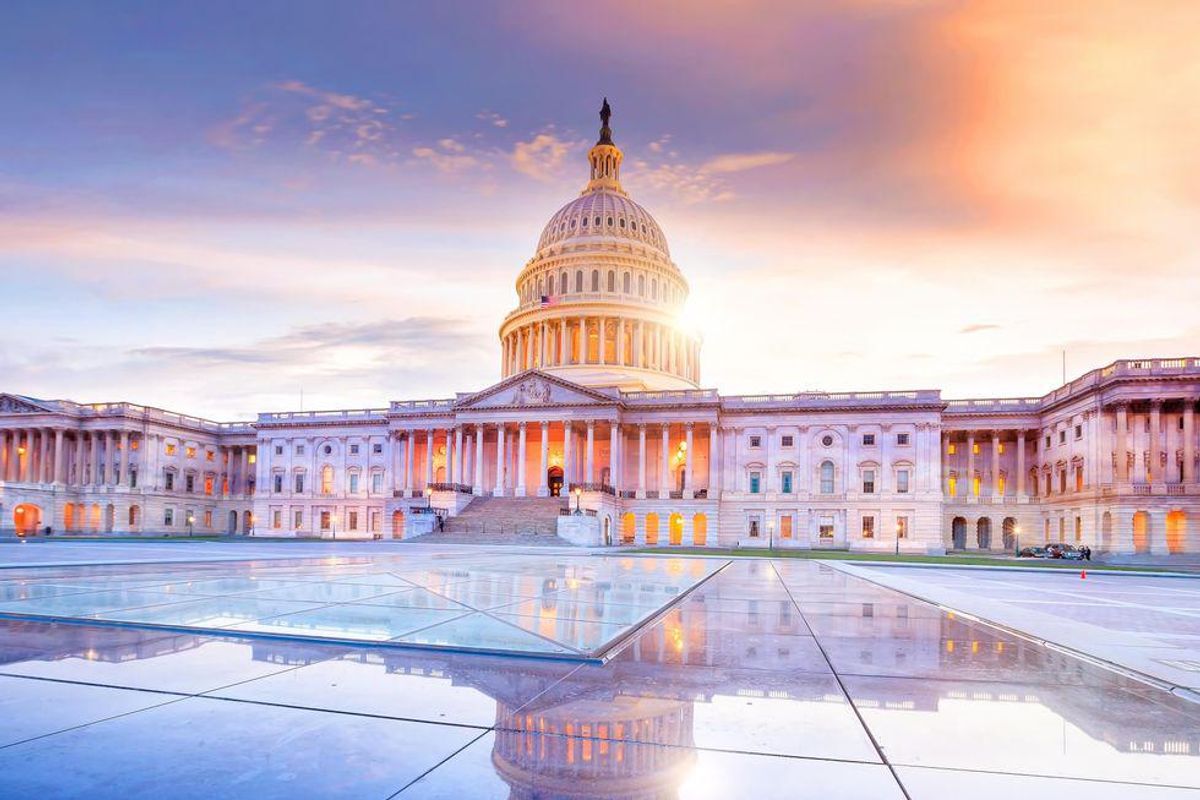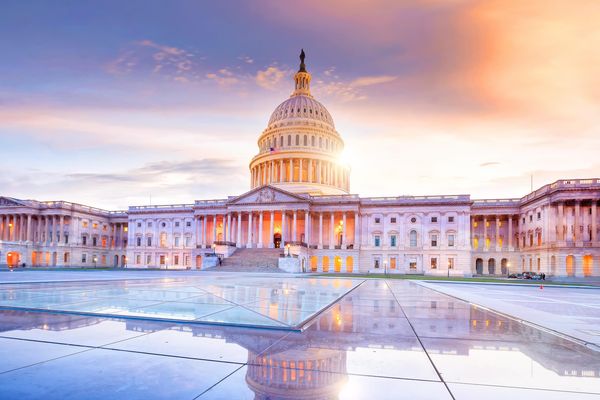1. HealthyWomen Celebrates Women's Health Week
HealthyWomen was proud to support National Women's Health Week (NWHW), held the week of May 9 to 15 and led by the U.S. Department of Health and Human Services' Office on Women's Health (OWH). NWHW serves as a reminder for women and girls to take care of their health. In a statement of support, HealthyWomen recognized the unique health experiences and challenges women face and the need to define women's health comprehensively.
2. A New Coalition Forms to Support NIH Office of Women's Health
In support of the National Institutes of Health Office of Women's Health (ORWH), HealthyWomen proudly signed on as a founding member of the new Friends of ORWH (FORWH) coalition. The FORWH coalition will advocate for federal support for ORWH's mission, which is "putting science to work for the health of women." Coalition members are committed to prioritizing inclusion of sex and gender in biomedical research and advancing women's health more broadly.
3. Rewards Abound With Creative Covid-19 Vaccination Incentives
From free beer in New Jersey to free crawfish in Louisiana, states have gotten creative in their efforts to encourage residents to get Covid-19 vaccines. With nearly 60% of eligible people in the United States having gotten at least one dose of the vaccine, the rates of vaccinations have slowed. To up the ante, several states — including Ohio, Oregon, New York and Maryland — have announced that state residents who get vaccinated are eligible for hefty lottery prizes, up to as much as $5 million in New York. West Virginia offered $100 savings bonds for people under 35 and a mayor in California is raffling off college scholarships for teens who get vaccinated. The NFL is offering free Super Bowl tickets and baseball teams are offering free tickets for vaccinated people. The White House also recently announced partnerships with several dating apps that are highlighting vaccination status to encourage people to get vaccinated.
4. Latinos Are More Likely to Want to Get the Covid-19 Vaccine, but Also to Face Barriers
Black and Hispanic Americans have the lowest Covid-19 vaccination rates, but it may not be by choice. According to a new analysis from the Kaiser Family Foundation, among people who haven't been vaccinated, Latinos are more likely than whites to say they will get it as soon as possible. But 59% of those reported (an erroneous) concern that they'd have to pay for the vaccine, and 52% reported concern about missing work due to side effects. Other barriers included fear of being asked for a Social Security number or government-issued identification and that getting a Covid-19 vaccine could jeopardize their or a family member's immigration status.
5. Pregnant People Are Less Likely to Die From Covid-19 Than Nonpregnant People, According to a New Study
A research letter published in the Annals of Internal Medicine looked at more than 1,000 pregnant and nearly 10,000 nonpregnant people between ages 15 and 45 who were hospitalized with Covid-19. Pregnant people were significantly less likely to die than nonpregnant people — 0.8% versus 3.5%. Of nine pregnant people who died, eight were Black or Hispanic, six had obesity, and seven had at least one other condition.
6. More Studies Show Racial Disparities in Maternal Health and Worse Outcomes for Black Women
Black women are at higher risk for bad outcomes — even death — during and after pregnancy. New data from the Blue Cross Blue Shield Association showed that Black women had higher rates of most risk factors for severe maternal morbidity compared to white women. Researchers at the University of Pennsylvania Perelman School of Medicine have published new findings that begin to explain some of these disparities. For example, a genetic contributor to pregnancy-related heart failure is no more common among Black women, yet Black women are at greater risk for heart failure. Instead, researchers found bad outcomes were associated with lower socioeconomic communities. Several insurers are working to improve maternal health outcomes.
7. New Guidelines Recommend Colon Cancer Screening Start at 45
The U.S. Preventive Services Task Force announced this month that it is recommending that people start getting screened at age 45, five years earlier than the previous guidelines. Colorectal cancer kills more than 50,000 people per year and is most common in older people. Rates have been increasing in younger adults, prompting the new screening guidelines. In 2018, the American Cancer Society updated its recommendation to start colorectal cancer screening at age 45, so the new change simplifies and aligns recommendations.
8. Cervical Cancer Rates Decline as Other Sex-Related Cancers Increase
According to a new study released by the American Society of Clinical Oncology, cervical cancers in the United States dropped by 1% per year between 2001 and 2017, thanks largely to increased vaccinations among young people against HPV, the virus that can cause cervical cancer, and ongoing cervical cancer screening. At the same time, the study showed that HPV-related cancers rose in the same time period. Oral and throat cancers in men and anal cancer and a rare rectal cancer in women increased by nearly 3% per year. Older adults who became sexually active before the advent of the HPV vaccine are less protected from HPV than their younger counterparts who have been vaccinated.
9. New Analysis Shows the Pandemic Helped Fuel "Telecontraception"
Getting contraceptives online or through an app was on the rise even before Covid-19, but according to new analysis by the Kaiser Family Foundation, the pandemic has fueled rapid growth in remote access to birth control. Of 13 companies included in the analysis, most had seen more than a 50% increase in demand for their services. The greatest increase in consumer demand was for oral contraceptives.
10. Public Insurance Enrollment Has Surged During Pandemic
Five million more Americans enrolled in Medicaid in 2020 following the start of the pandemic, representing about a 1.5 percentage point increase in enrollment, according to a research letter in JAMA Network Open. Several states are also moving to expand Medicaid benefits to new mothers for up to a year after giving birth, taking advantage of new flexibility in the American Rescue Plan that Joe Biden signed into law in March. Additionally, since the Biden administration's expanded special enrollment period for enrolling in health insurance via Healthcare.gov, approximately 1 million people had signed up by mid-May.


